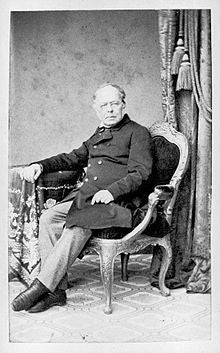Moritz Hauptmann was a composer and music teacher with strong opinions about the works of his contemporaries. He was also a pianist capable of pulling off a little fraud when the occasion seemed to call for it. He was in Rome at a social gathering when he was asked to play an illegible waltz that had been mailed to an archbishop by a Madame Bertrand. In a letter written in December 1829, Hauptmann told a colleague back in Germany how he handled the situation:
I couldn’t help chuckling when I saw them all under the delusion that they were going to listen to Madame Bertrand’s waltz, knowing the whole time that it wouldn’t be anything of the kind. However, something had to be played, if only to make the people get up again. I looked carefully at the cramped notes of the music and began to extemporize a waltz of some sort in 3/4 time, imitating as best I could the principal features of the manuscript.
The Archbishop was at my side, looking over the music; so where the notes went up, I went up; where there were eighth notes I played eighth notes, and once or twice I shifted my hands across where the passage seemed to require it. My only object was to get through a rhythmical something or other without breaking down; the rest was not my affair, but Madame Bertrand’s.
Stay informed on the latest news
Sign up for WPR’s email newsletter.
No waltz lasts longer than three or four minutes, and I was careful not to make mine an exception. Then came the compliments and discussions; they thought it charming, only some of them doubted whether it was quite suitable for a dance, on account of its elegiac character and so forth. I know I was glad enough to get out into the open air, and very glad indeed that it was dark; the more I thought over what had passed, the more ludicrous it seemed to me, and I laughed till I cried.
Wisconsin Public Radio, © Copyright 2024, Board of Regents of the University of Wisconsin System and Wisconsin Educational Communications Board.





